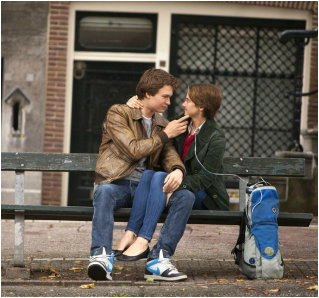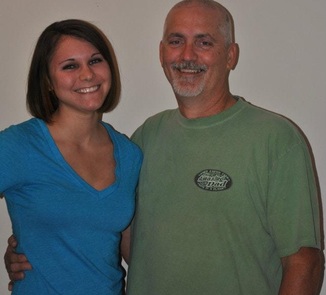My dad passed away a little over a year and a half ago to stage IV pancreatic cancer. He was diagnosed at the end of June and started chemo in August. After six weeks of treatment his cancer had only tripled. At that point he decided to stop treatments and begin hospice. He passed away that October.
People talked about how hard he fought at his service. “Like, you are familiar with the trope of the stoic and determined cancer victim who heroically fights [his] cancer with inhuman strength and never complains or stops smiling even at the very end, etcetera? "Indeed," I said. "They are kindhearted and generous souls whose every breath is an Inspiration to Us All. They're so strong! We admire them so!"” And yet I couldn’t help thinking ‘That’s bullshit. He quit fighting.’ I wouldn’t go so far as to say that he gave up because I feel that that particular combination of words has a negative connotation, but he decided to live a shorter, happier life rather than a longer life of suffering.
“People talk about the courage of cancer patients, and I do not deny that courage,” but I think we do them an injustice when we Romanticize them. When we fail to recognize just how much they suffered. I don’t think it does anybody any good to lie about the situation or make it something that it’s not. This is why I love Hazel so much. She didn’t do this. She recognized that these lies weren’t going to make her live longer or leave a legacy among the masses. As Gus said, she wanted to be loved deeply, not widely. I only cried when I saw her character waiver, when she gave in to the societal norms and Romanticized Gus at his funeral.
Romanticizing cancer patients also provides an uncertain ground for the living to stand upon when grieving. We can more truly grieve when we come to our senses about the reality of the situation, as compared to constructing a false reality. You know what? Life is unfair. It’s not going to be okay for a while and, even then, you’re going to randomly break down somewhere because you thought you heard or smelled him. I think that we can grieve more genuinely and from a deeper place in our heart when we recognize these things. When we admit to ourselves that he suffered and now it’s our turn to suffer. You see, “that’s the thing about pain. It demands to be felt.” A false foundation of heroism makes our grieving shallow. You’re not grieving for the person you’re grieving for what you want them to be.
And when we have a friend who is grieving we shouldn’t say “I’m sorry” because, you know what, that doesn’t mean a thing. You should hold them and let them cry. You should bring them ice cream, and coffee when they least expect it. You should let them know you’re there by actually being there. Don’t say it. Just make your presence known and continuously felt. They’ll come to you when they need you.
“If the inevitability of human oblivion worries you, I encourage you, [dear reader], to ignore it. God knows that’s what everyone else does.”


 RSS Feed
RSS Feed

